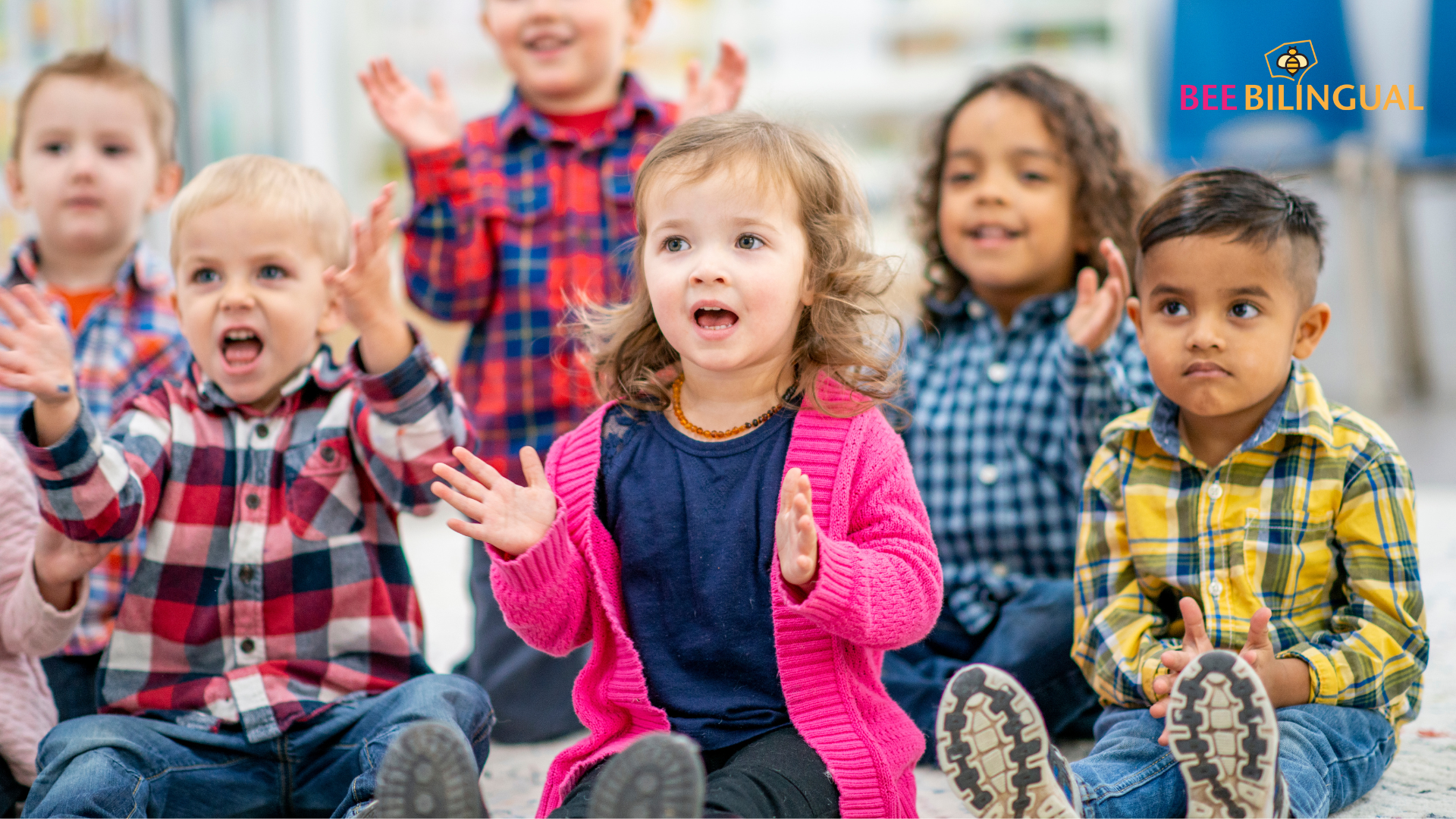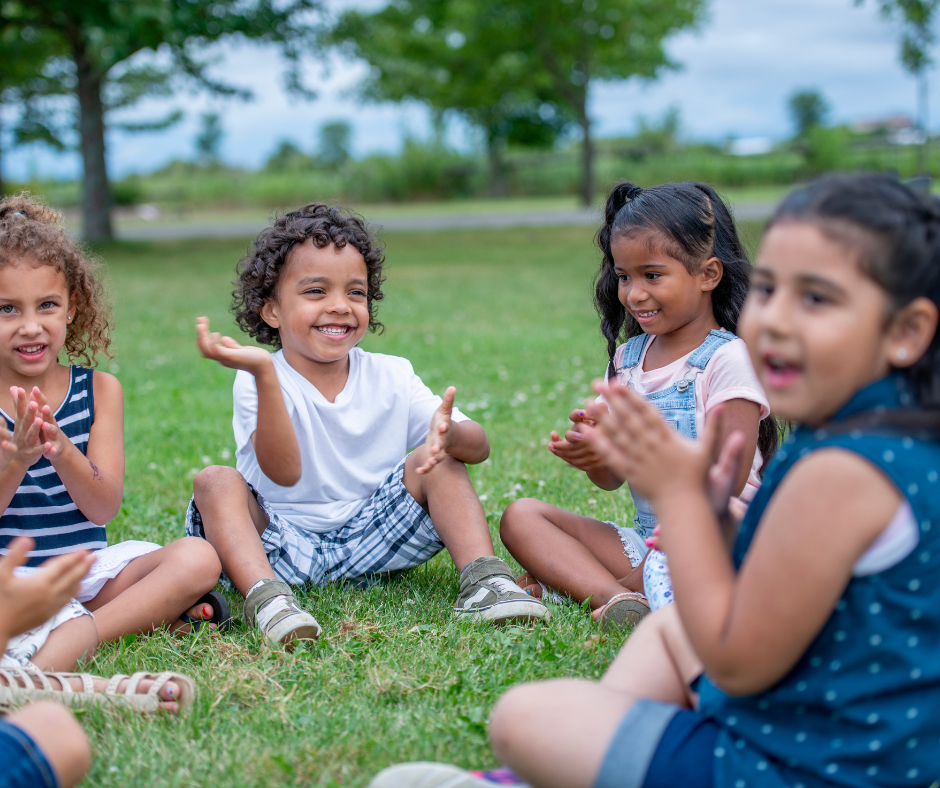
Music is an essential language learning tool for young bilingual learners that should be part of their daily or weekly language learning routine, whether this happens at home or in school.
The Power of Music in Language Learning
Music, Songs & Rhymes
Songs, nursery rhymes and general musical activities can help children memorise words, sentences, structures and sounds. Simple songs, like the following German example, also can be easily translated into any language:
Repetition
Songs and rhymes are often very repetitive and bilingual learners enjoy repeating what they they have memorised.
Fun
Music and rhymes create a positive language learning atmosphere. Add movements and dance to the mix and your little bilingual stars will be ready to rocking roll.
Culture
There are many children’s songs that have cultural references (even special celebrations such as Christmas) and are an important part of a country’s heritage. With classic children’s tunes in your language lessons you do not only teach news words but you also let your language learners be part of a different culture.
Songs
Songs can be a very effective (and fun) language learning tool for young children.
Songs can help to:
– improve language learners’ listening skills
– improve language learners’ pronunciation and rhythm
– teach new vocabulary and sentence structures
– learn more about a different culture…
and, above all, songs make language learning more fun!
Here is a little example song of an effective and fun language learning song:

You and your bilingual students can even make up your own songs. Simple songs made of repeated greetings or easy sentences are fantastic for beginners. Then you can move on to classic children’s songs such as The Wheels on the Bus or Heads, Shoulders, Knees & Toes and add the movements. Of course, you can also adapt these songs to suit your lessons or language activities at home.

Nursery Rhymes
Rhymes are fantastic for the cognitive development of children. The repetition of rhymes and stories teach children how language works and support children’s speech development. And of course, nursery rhymes increase vocabulary.
You can read nursery rhymes, sing rhymes
or dramatize them.